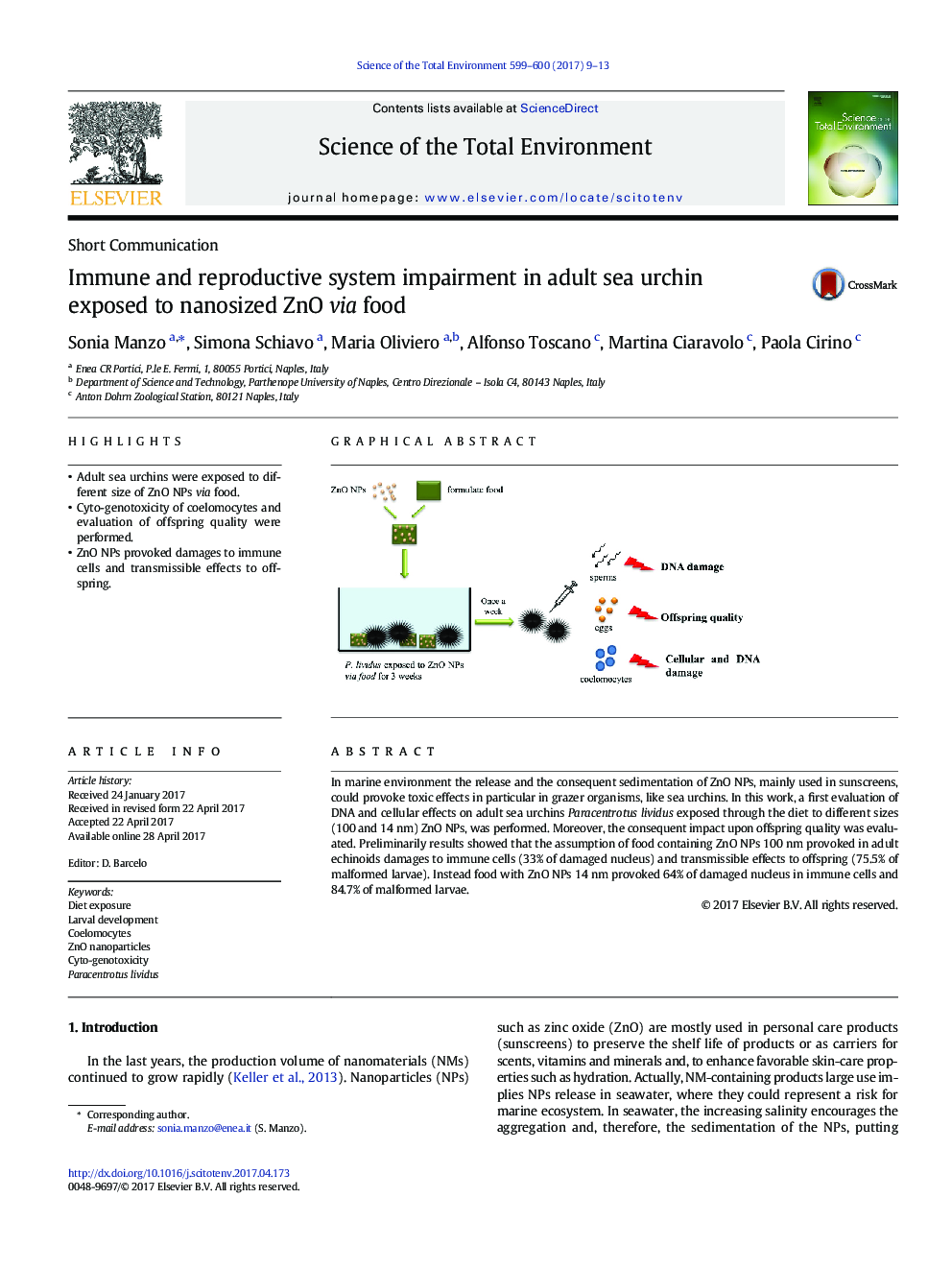| Article ID | Journal | Published Year | Pages | File Type |
|---|---|---|---|---|
| 5750463 | Science of The Total Environment | 2017 | 5 Pages |
â¢Adult sea urchins were exposed to different size of ZnO NPs via food.â¢Cyto-genotoxicity of coelomocytes and evaluation of offspring quality were performed.â¢ZnO NPs provoked damages to immune cells and transmissible effects to offspring.
In marine environment the release and the consequent sedimentation of ZnO NPs, mainly used in sunscreens, could provoke toxic effects in particular in grazer organisms, like sea urchins. In this work, a first evaluation of DNA and cellular effects on adult sea urchins Paracentrotus lividus exposed through the diet to different sizes (100 and 14Â nm) ZnO NPs, was performed. Moreover, the consequent impact upon offspring quality was evaluated. Preliminarily results showed that the assumption of food containing ZnO NPs 100Â nm provoked in adult echinoids damages to immune cells (33% of damaged nucleus) and transmissible effects to offspring (75.5% of malformed larvae). Instead food with ZnO NPs 14Â nm provoked 64% of damaged nucleus in immune cells and 84.7% of malformed larvae.
Graphical abstractDownload high-res image (150KB)Download full-size image
